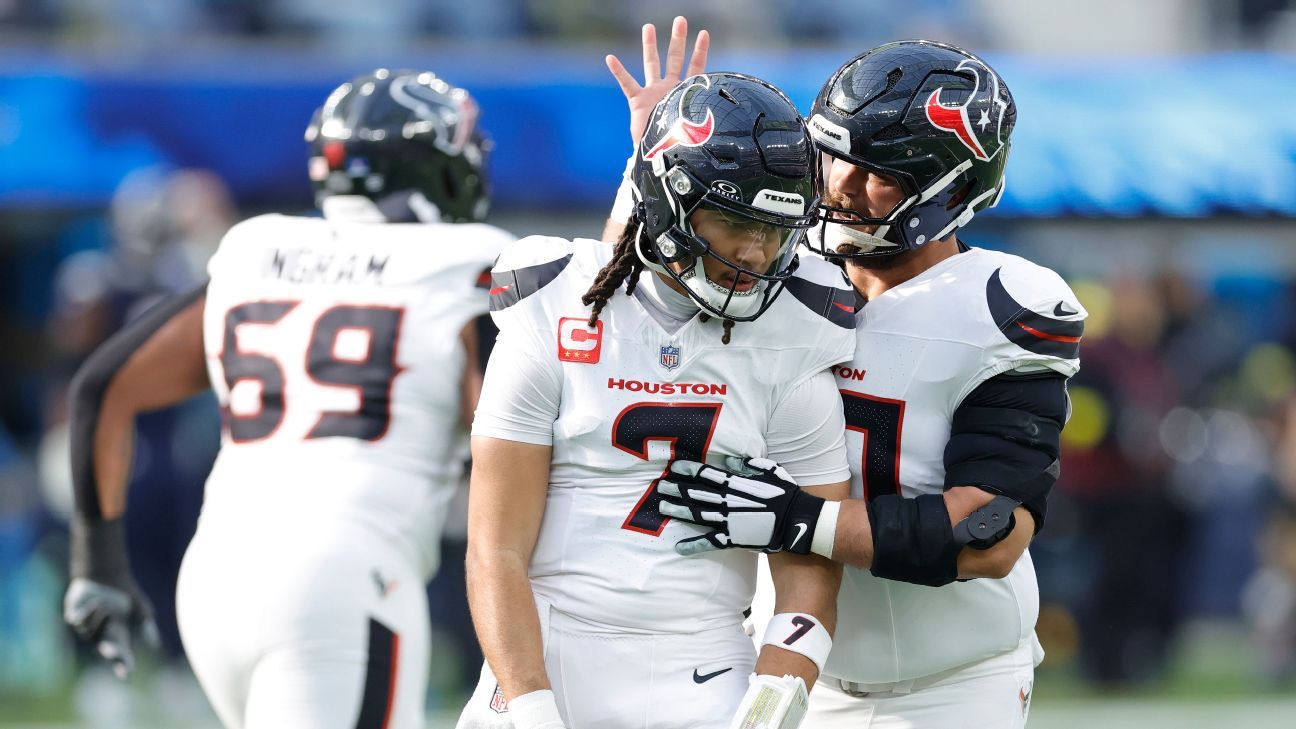Sports
Ryder Cup 2025: Reliving Team Europe’s away wins as Donald aims for fantastic fifth
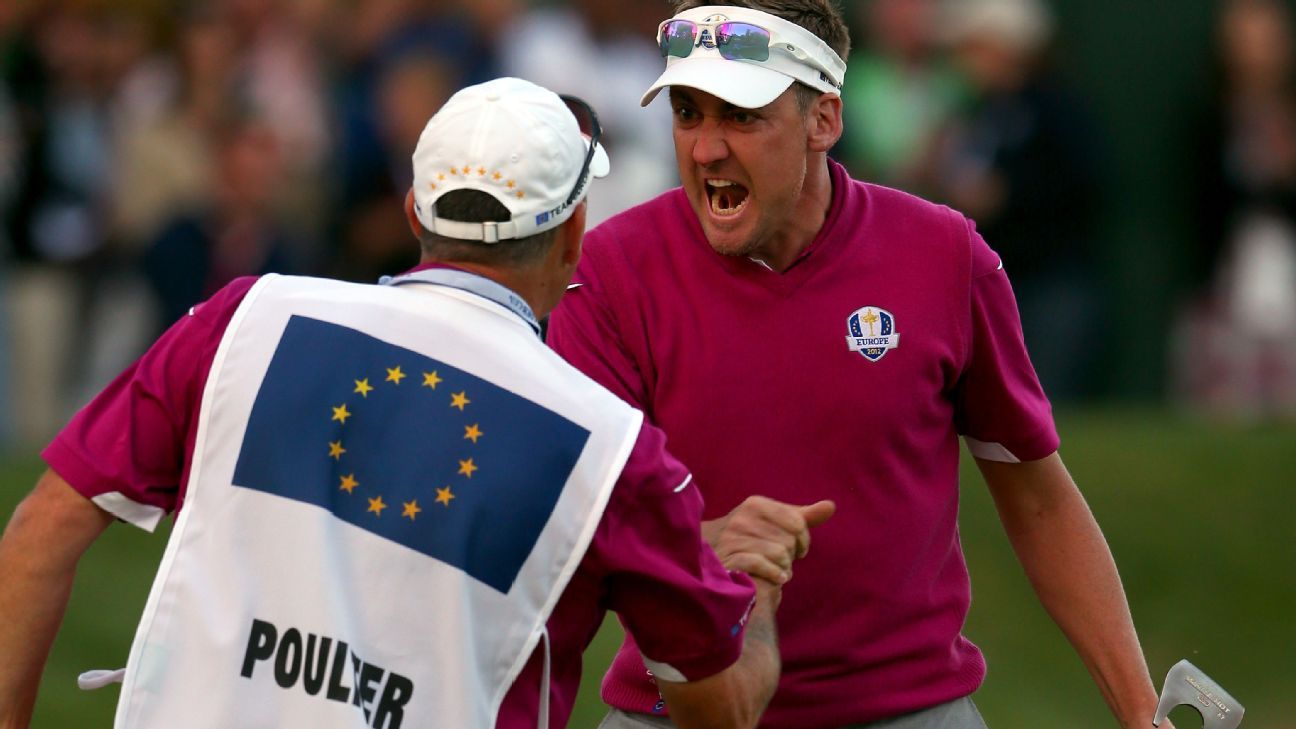
Ryder Cup success is so often shaped by what happens at home — the roaring crowds, familiar fairways, and the psychological edge of hosting. But it’s the victories achieved across the Atlantic, deep in hostile territory, that tend to leave the deepest mark.
This year, Luke Donald returns as captain with what many believe is one of Europe’s strongest-ever squads, aiming for a momentous victory on U.S. soil. History suggests an uphill task at Bethpage Black; Team Europe, amid all its recent success at home, has managed just four victories overseas against Team USA.
Each came with its own drama, its own heroes, and its own lasting impact.
1987 — Muirfield Village, Ohio
Heading into the 1987 Ryder Cup at Jack Nicklaus’ Muirfield Village, few outside the European camp truly believed a road win was possible. The U.S. had an unbeaten home record of 13-0 spanning six decades and despite Europe’s breakthrough victory at The Belfry in 1985, many still saw the hosts as the dominant force. Muirfield — Nicklaus’ pride and joy — was supposed to underline that superiority.
But Tony Jacklin‘s side had other ideas. Led by the fire and flair of Seve Ballesteros and the icy precision of Nick Faldo, Europe opened up a 6-2 lead on day one — winning all four afternoon fourball matches — and then built that lead to 10½-5½ after Saturday. They were on the brink of history.
The Sunday singles brought inevitable pressure and a spirited U.S. comeback, but the Europeans held firm. Eamonn Darcy‘s win over Ben Crenshaw — whose snapped putter became a symbol of U.S. frustration (he putted with his 1 iron after the sixth hole) — was one of several gritty victories that sealed the 15-13 win. Fittingly, Ballesteros, who top-scored with four points, was the man with the clinching putt in a 2&1 victory over Curtis Strange.
Europe had proved they could travel, compete, and conquer.
1995 — Oak Hill Country Club, New York
By 1995, the Ryder Cup was no longer a one-sided American affair — but wins in the U.S. were still rare and revered.
Europe arrived in Rochester under the experienced eye of Bernard Gallacher, captaining the team for a third and final time after narrow defeats at Kiawah Island and The Belfry. The opposition was inexperienced, but hungry. Up-and-coming rookies like Tom Lehmann and Phil Mickelson supplemented major winners Corey Pavin, Ben Crenshaw, Curtis Strange and Fred Couples, while Europe had three of the current top-six golfers in the world — Nick Faldo, Bernhard Langer and Colin Montgomerie — at their disposal.
But when the U.S. led 9-7 heading into the Sunday singles — which they had won in the last four Ryder Cups — few imagined they could be caught.
What followed was one of the Ryder Cup’s more clinical Sundays. The visitors claimed 7½ of the 12 singles points on offer to edge the contest 14½-13½. For all Europe’s starpower, it was unassuming Irish rookie Philip Walton who held his nerve to win 1-up against Jay Haas and secure the vital point.
The Europeans delivered when it mattered most.
2004 — Oakland Hills Country Club, Michigan
If there was ever a Ryder Cup where the final result never felt in doubt, it was Oakland Hills in 2004. From the opening session, Langer’s Europe looked sharper than their American counterparts. The 18½-9½ scoreline — a record at the time for a European team (they would repeat the result two years later) — barely told the full story of just how comprehensive this win was.
Europe dominated all but one session. The score was 6½-1½ by the end of Friday — when the much-heralded Mickelson-Tiger Woods partnership was beaten — and 11-5 after two days.
Faced with a mountain to climb, the U.S. only won four singles matches on Sunday. It was a pummelling.
Every single European player contributed to the scoreboard — a rare and powerful symbol of unity. Stars like Sergio Garcia and Lee Westwood were outstanding, but it was the collective effort that overwhelmed the U.S. “The best team I’ve ever been part of,” Montgomerie would later say.
Oakland Hills didn’t just feel like a win — it felt like a statement.
2012 — Medinah Country Club, Illinois
Few sporting comebacks rival what Europe pulled off at Medinah. Trailing 10-6 going into the final day — and facing a red-hot U.S. team playing in front of a roaring Chicago crowd — José María Olazábal‘s side looked beaten. Cue a seismic shift.
The spark had come late Saturday, when Ian Poulter — a man possessed — birdied the final five holes in his fourball match with Rory McIlroy to give Europe a lifeline. Then on Sunday, European players — one by one — began flipping matches.
Donald set the tone. McIlroy arrived late but delivered. Justin Rose‘s birdie-birdie finish — featuring a 40-footer on the 17th — to edge Mickelson was breathtaking. And Martin Kaymer, facing enormous pressure, sank a nerveless putt on 18 to retain the cup. When Woods missed a four-footer to halve the last match with Francesco Molinari, it was all over.
They won 8½ of the 12 singles points, stunning the U.S. and sealing a 14½-13½ win. Olazábal, captaining with Ballesteros’ silhouette embroidered on his chest, dedicated the win to his late friend, who had passed away a year prior. Emotion poured from every European player.
The Miracle of Medinah — the Ryder Cup’s greatest comebacks — was complete.
Sports
Snap reactions to Week 17 games: Ravens’ Derrick Henry scores 4 TDs in win over Packers
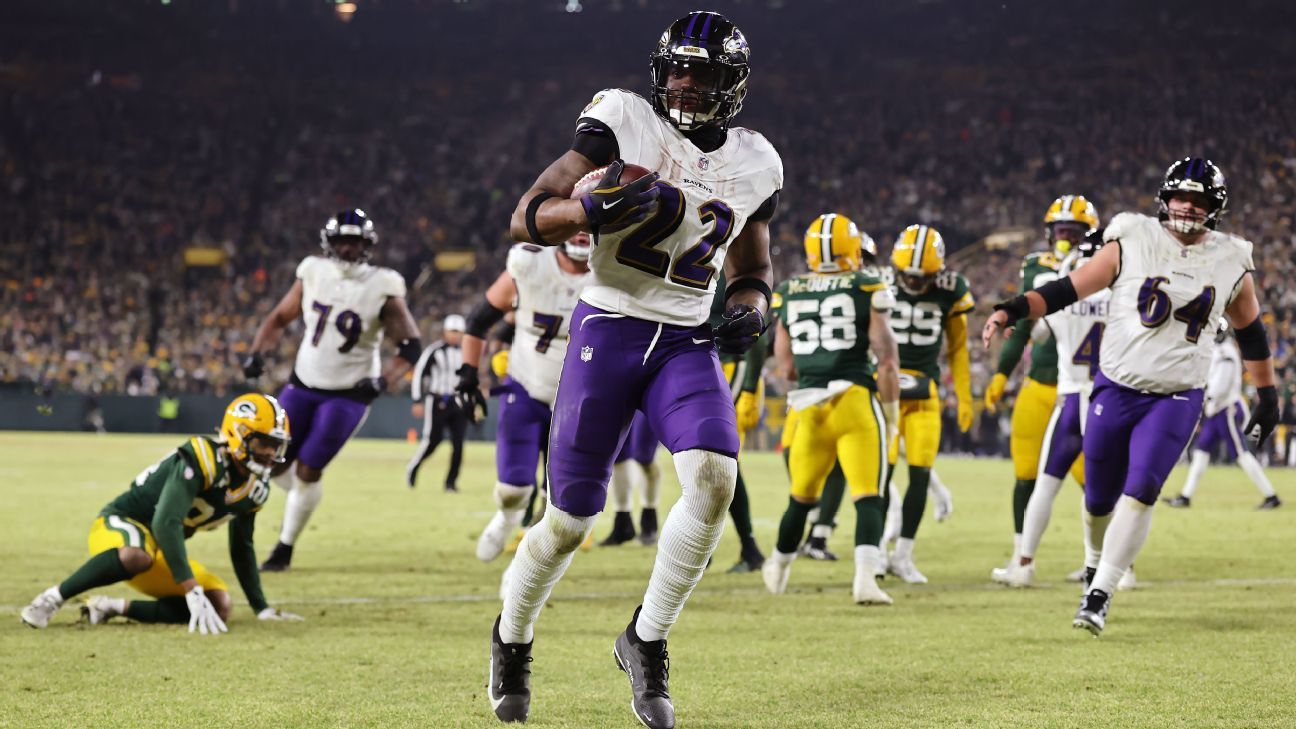
Week 17 of the 2025 NFL season began on Christmas Day with an NFC East showdown between the Cowboys and the Commanders. Dallas jumped all over Washington early but had to hold on after allowing several big plays.
Later in the day, the Vikings crushed the Lions’ playoff hopes. Minnesota came out swinging and held on to beat Detroit at home. And the Broncos closed things out with a tight win over Kansas City, keeping their hopes of earning the AFC’s top seed alive.
The action continued Saturday with the Texans beating the Chargers to clinch a third consecutive playoff berth for the first time in franchise history. Later, the Baltimore Ravens rode Derrick Henry to victory over the Green Bay Packers.
Our NFL Nation reporters reacted to all the action, answering lingering questions coming out of each game and detailing everything you need to know for every team. Let’s get to it.
Jump to:
DAL-WSH | DET-MIN
DEN-KC | HOU-LAC | BAL-GB
Catch up on the action: Box score | Recap
![]()
Ravens
How did Ravens prevail without QB Lamar Jackson? Two words: Derrick Henry. The 31-year-old running back carried Baltimore in an elimination game, rushing for 216 yards and four touchdowns. After a week of being criticized for not giving Henry the ball enough — he didn’t get a carry in the last 12 minutes of Sunday’s 28-24 loss to the New England Patriots — the Ravens handed it off to Henry 36 times, which are a career high and the most carries by an NFL player this season.
Henry’s dominating performance helped him move into 10th place on the NFL’s all-time rushing list and fourth in rushing TDs. This was also Henry’s seventh career game with 200-plus yards rushing, breaking a tie with Adrian Peterson and O.J. Simpson for the most all-time.
This was a clutch performance by Henry and the Ravens, who would have been knocked out of playoff contention with a loss. With Jackson sidelined by a back injury, backup QB Tyler Huntley kept drives alive with his legs by totaling 55 yards, the most rushing yards by a Baltimore quarterback since Jackson in the season opener.
Biggest hole in the game plan: Defending the deep pass. The Ravens nearly failed to hold a double-digit lead for a second straight week because they couldn’t stop the long downfield throws by Malik Willis. In the first three quarters, Willis was 6-of-7 for 197 yards and a touchdown on throws of 20 or more air yards. That’s the second-most completions on such throws by a quarterback this season. This has been an issue for Baltimore, which entered this game by giving up the sixth-most completions on passes of 20 or more yards (26). This might have been the worst game of the season for Ravens cornerback Nate Wiggins. — Jamison Hensley
Next game: at Steelers (TBD)
![]()
Packers
How should Packers handle the season finale?
With their chance to win the NFC North gone after this loss, the Packers will have to consider trying to get as healthy as possible when they go on the road for a wild-card playoff game. That might mean holding several starters out of next weekend’s regular-season finale at the Vikings, including quarterback Jordan Love (even if he clears concussion protocol) and possibly backup Malik Willis (who reinjured his right shoulder in the fourth quarter).
This team is not just limping to the finish line with three straight losses — it is banged up after losing five more players to game-ending injuries. This after entering the game without five key players due to season-ending injuries: Elgton Jenkins, Tucker Kraft, Micah Parsons, Devonte Wyatt and John FitzPatrick.
What to make of the QB performance: Whether it’s a team like the Cardinals, Dolphins, Raiders or another quarterback-needy team, someone is going to give Willis starter’s QB money during the offseason. Willis came to the Packers at the start of last season in a trade with the Titans for a seventh-round pick and is in the final year of his original rookie contract. He’ll probably be too expensive for the Packers to keep as a backup. Just about every time he’s had to fill in for Love, he has excelled. He won both of his starts last season and played well in relief in another win. Saturday, however, was next level. Willis accounted for 348 yards of offense, despite exiting briefly in the fourth quarter due to his shoulder issue. He finished with 288 passing yards and a score, plus 60 yards and two more TDs on the ground. — Rob Demovsky
Next game: at Vikings (TBD)

Catch up on the action: Box score | Recap
![]()
Texans
With a playoff berth clinched, what is the Texans’ biggest priority now? Winning the AFC South. The Texans still have a shot to claim the division title, but it depends on whether the Jacksonville Jaguars lose either of their next two games. It’s as simple as this: If the Jags fall to the Indianapolis Colts or the Tennessee Titans and Houston beats the Colts in Week 18, the Texans will win the AFC South for a third consecutive season.
Turning point: Quarterback C.J. Stroud got sacked on third down with 2:32 remaining in the fourth quarter. The Chargers were poised to get the ball back, but cornerback Tarheeb Still was flagged for illegal contact, which gave Houston the first down. Running back Woody Marks then picked up a first down two plays later to secure Houston’s seventh straight victory. — DJ Bien-Aime
Best quote from the locker room: On a night in which the Texans sacked Justin Herbert five times and picked him off once, safety Jalen Pitre said: “God is the greatest. The Texans defense is maybe second.”
Next game: vs. Colts (TBD)
![]()
Chargers
How far can Justin Herbert take the Chargers? The box score doesn’t quite reflect the performance (236 passing yards, one interception, 37 rushing yards), but Saturday’s game was one of Herbert’s most impressive. The quarterback evaded sacks, ran through opponents and delivered throws with defensive linemen draped on him — all while playing with a broken left hand. It was the kind of effort that reinforces why the Chargers believe Herbert can will them to a title. Still, expecting Herbert to replicate that level of play isn’t sustainable for a deep postseason run; and even with how well he played, he couldn’t overcome the mistakes around him.
Key stat to know: Cameron Dicker missed a field goal attempt from under 40 yards for the first time in his career. Dicker, the most accurate place-kicker in NFL history and a first-time Pro Bowl selection this season, pushed a 32-yard kick wide right to end the first half and later was unsuccessful on an extra point attempt. Dicker has been responsible for a large portion of the Chargers’ wins this season, but his misses loomed large for L.A. on Saturday. — Kris Rhim
Best quote from the locker room: The Chargers pride themselves in not allowing explosive plays, but allowed two 40-plus yard touchdowns to begin the game due to busted coverages. “The secondary was just all out of whack, not on the same page,” cornerback Donte Jackson said. “We can’t give s— away. We’ve got to be cleaner, more detailed, and execute way better.”
Next game: at Broncos (TBD)

Catch up on the action: Box score | Recap
![]()
Broncos
Is the Broncos’ grind-it-out offense playoff ready? The Broncos took care of what they needed to Thursday to stay in the driver’s seat for the AFC West title and the No. 1 seed in the playoffs. But there were good news/bad news vibes from the Denver offense. The good news was that the Broncos had three scoring drives of eight or more minutes. The bad? Only one of those resulted in a touchdown. They will need to close the deal with more authority (and touchdowns) in the postseason because when they don’t, they leave themselves open to what happened against the Chiefs — where they’re in a down-to-the-wire scrap despite giving up only 95 yards of total offense prior to Kansas City’s final drive.
What to make of the QB performance: Bo Nix guided another fourth-quarter, game-winning drive, finishing with a 1-yard TD pass to RJ Harvey with 1:45 to play, so he got the big-picture job done once again. But the Broncos didn’t have a play of more than nine yards until Nix scrambled for 14 yards with 5:35 left in the second quarter and didn’t have a pass play of more than nine yards until the two-minute warning in the first half. Nix, who finished 26-for-38 for 182 yards, also had some accuracy issues crop up again, helping result in a deflected-ball interception in the first half. — Jeff Legwold
Next game: vs. Chargers (TBD)
![]()
Chiefs
What did we learn about Chris Oladokun? Well, the Chiefs possessed the ball for fewer than 21 minutes Thursday night, which wasn’t great for Oladokun, Kansas City’s third-string quarterback. But when he had limited opportunities, Oladokun showed he is capable of being a quality game manager. In just 16 attempts prior to the final drive, Oladokun never put the ball in danger. Instead, he had some nice moments scrambling and improvising to create yards. Even in suboptimal circumstances late — less than two minutes left and only one timeout — Oladokun was able to get the ball to the Broncos’ 21-yard line. But his final pass of the game, a deep pass into the end zone on fourth-and-8, was too high for receiver Hollywood Brown.
Most surprising performance: Without their top two cornerbacks, Trent McDuffie and Jaylen Watson, the Chiefs’ defense did more than hold its own against Denver’s offense. Kristian Fulton and rookie Nohl Williams performed well in fill-in roles despite the Broncos trying over and over to get receiver Courtland Sutton in one-on-one opportunities. Fulton finished with three pass breakups, one of which led to an interception by linebacker Nick Bolton. Williams had eight tackles, including three behind the line of scrimmage.
Best quote from the locker room: “That’s the first time I’ve ever seen someone try to draw the defense to them by fumbling it,” Chiefs tight end Travis Kelce said of Oladokun while laughing. “That was like a little yo-yo trick he put on. I’m proud of him, man, throughout the week, his attention to detail and his professionalism and his leadership. I couldn’t be happier for the guy. Obviously, I wish we could’ve gotten that win for him [in] a big game against a rival. I’m proud of the way he led us and kept fighting.” — Nate Taylor
Next game: at Raiders (TBD)

Catch up on the action: Box score | Recap
![]()
Vikings
Was this enough to get safety Harrison Smith to play another season? It has been a while since the 36-year-old has made so many high-impact plays in a game. But Smith produced a sack, an interception, two batted passes and two tackles for loss as the Vikings’ defense forced six turnovers. Smith hasn’t said that he plans to retire, but there are many people in and around the franchise who suspect he will. But if he can still play like this, perhaps he could once against delay that decision.
Key stat to know: The Vikings finished with 3 net passing yards, the fewest by a winning team in an NFL game since 2006, as rookie quarterback Max Brosmer took six sacks and struggled to find open receivers. They were at minus-7 net passing yards until Brosmer’s final throw, a 10-yard pass to receiver Justin Jefferson to convert a third down and seal the game. — Kevin Seifert
Next game: vs. Packers (TBD)
![]()
Lions
How concerning was quarterback Jared Goff‘s performance? Very concerning. Goff couldn’t get much going as the offensive line struggled to protect him without starting LT Taylor Decker, who was ruled inactive with an illness. The tough Vikings defense sacked Goff five times and forced five turnovers by him (two interceptions, three fumbles), which tied a career high. The Lions’ eight turnovers through Week 16 were the fewest in the NFL, but they ended with a season-high six turnovers in Minnesota as Goff went 18-for-29 for 197 passing yards and a touchdown while facing constant pressure. With the loss, the Lions were eliminated from playoff contention.
Key stat to know: This is the first time the Lions have lost multiple fumbles in a game this season with four. Goff fumbled his snap in the first quarter, then RB Jahmyr Gibbs fumbled while rushing at 14:22 in the second quarter. Goff fumbled twice in the fourth quarter. Prior to this game, Detroit’s last time losing at least two fumbles in any game was in Week 12 of 2023 against the Packers. The Lions’ 38-game streak without losing multiple fumbles was the fourth-longest active streak in the NFL entering Thursday behind the Falcons (42), Chiefs (41) and Texans (40). — Eric Woodyard
Next game: at Bears (TBD)

Catch up on the action: Box score | Recap
![]()
Cowboys
Does finishing with a non-losing record matter? It does to Brian Schottenheimer, who has frequently referred to this being the first year of the program. The Cowboys are 7-8-1 with their Week 18 finale against the New York Giants looming, and Schottenheimer has given no indication that the Cowboys plan to sit regulars such as Dak Prescott to avoid injury. The quarterback has said he wants to play and will fight to remain in the lineup. If the Cowboys lose to the Giants — whether they play their main guys or not — it will be the first time Dallas has had consecutive seasons with a losing record since three straight 5-11 finishes from 2000 to 2002.
Key stat to know: The Cowboys converted 4 of 9 third downs in the first half and all four chances on fourth down. They finished with six — the most fourth-down conversions the Cowboys have had in any game over the past 45 seasons. The last team to have four first-half fourth-down conversions was the 2006 New Orleans Saints, who also had four against the Giants. The Cowboys had 17 first downs in the first half, while the Commanders ran just 18 plays. Dallas added two more fourth-down conversions in the fourth quarter. — Todd Archer
Next game: at Giants (TBD)
![]()
Commanders
Will Dan Quinn end the season on the hot seat? There has been no indication that Quinn’s job is in jeopardy, but even if he doesn’t end the season on the hot seat, his future job security will be a topic entering next season. Washington has lost 12 of its past 13 games — one year after winning 12 in the regular season. But a lineup depleted because of injuries has been the main culprit to Washington’s season, giving Quinn and his staff a reprieve. However, Quinn will have a decision to make at defensive coordinator. He took over playcalling duties from Joe Whitt Jr. in Week 11. Multiple players have said Quinn hasn’t lost the locker room, and despite being undermanned against Dallas — starting their No. 3 QB in Josh Johnson — the Commanders made it a game thanks in part to strong performances from running back Jacory Croskey-Merritt (105 yards rushing) and defensive tackle Jer’Zhan Newton (three sacks).
Biggest hole in the game plan: Third- and fourth-down defense. Dallas converted 8 of 19 third downs, which wasn’t horrible. There was one 14-yard gain on third-and-18 that set up a fourth-and-short. That’s where the Commanders faltered, as Dallas converted all of its fourth-down attempts, leading to 17 points. Dallas was able to run 87 plays — 19 more than any other team has had against the Commanders this season. — John Keim
Next game: at Eagles (TBD)
Sports
How Alonso’s start compares to Real Madrid coaches Mourinho, Ancelotti, Zidane
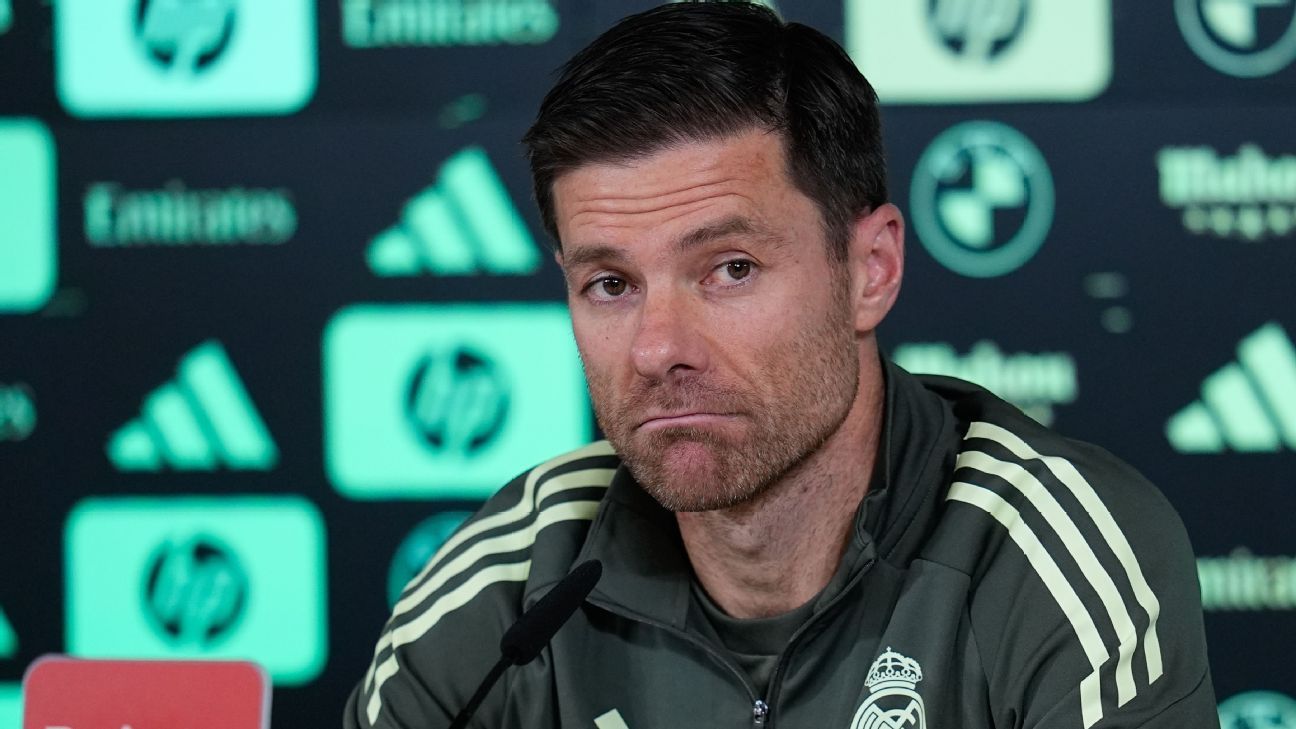
As his final news conference of 2025 came to an end, Xabi Alonso had one last word for the journalists gathered in the Santiago Bernabéu press room. Real Madrid had just beaten Sevilla 2-0 in LaLiga on Saturday and, before taking a well-earned Christmas break, Alonso had a point to make.
“Happy holidays to everyone,” he said, getting to his feet, before adding with a smile: “Tranquilos” (“Keep calm”). It was a good-natured joke at the media’s expense after weeks of excitable speculation about Alonso’s future as coach thanks to a worrying dip in form.
The implication going into the league’s two-week festive holiday was: Don’t worry about me. I’m not going anywhere. See you in January.
– Stream LaLiga, Copa del Rey, Spanish Supercopa on ESPN+ (U.S.)
– Feliz ‘Mavidad’! Real Madrid turn Bernabéu pitch into winter wonderland
– Hunter’s midseason LaLiga verdicts: Barça, Real Madrid, Yamal, title race
Alonso’s first six months at Real Madrid have been anything but calm. “Tomorrow, the rock ‘n’ roll begins,” the coach said before his first game at the FIFA Club World Cup, and since then it has been nonstop drama.
The summer tournament in the U.S. — which ended for Madrid with 4-0 semifinal hammering by Paris Saint-Germain — soon forgotten, 2025-26 began with 13 wins in 14 games. Alonso’s team was seemingly a smooth-running, if unspectacular, machine.
Since then, the wheels have come off. If a 5-2 defeat to Atlético Madrid in September was a shock, a UEFA Champions League loss to Liverpool, followed by three consecutive draws in LaLiga and then defeats to Celta Vigo and Manchester City, felt like a full-blown crisis.
Sources told ESPN earlier this month that Madrid were considering their coaching options, and three, unconvincing wins last week — against Alavés, Talavera de la Reina and Sevilla — have done little to strengthen Alonso’s position. Despite his call for calm, the coach goes into Christmas with his future uncertain.
Madrid, and club president Florentino Pérez, are notoriously impatient when their coaches don’t deliver. Julen Lopetegui — poached from the Spain national team on the eve of the 2018 FIFA World Cup — lasted just 137 days. Rafa Benítez lasted 215.
A look at the first six months for Madrid’s past 15 years of coaches, starting with José Mourinho in 2010, suggests that if Alonso has underperformed in comparison to his predecessors, it isn’t by much. The question for Pérez and his advisors is whether Alonso’s results are bad enough to justify sacking a highly-rated young coach, a club legend as a player, who became one of the most sought-after managers in football after his record-breaking achievements at Bayer Leverkusen.
For the purposes of this comparison, we’ve omitted Madrid’s Club World Cup games, given that Alonso has insisted on describing them as an add-on to last season, and none of his predecessors faced anything comparable. With Alonso’s team having played 25 matches in LaLiga, the Champions League and the Copa del Rey in 2025-26, we’ve looked at the first 25 games for Madrid’s previous coaches in those competitions — if they made it that far.
José Mourinho (August-December 2010)
Mourinho joined Madrid having just won the Champions League with Inter Milan. He arrived in LaLiga with a demanding brief: toppling Pep Guardiola’s Barcelona. He won an impressive 20 of his first 25 games in charge, with a win percentage of 80%, and keeping a frankly ridiculous 15 clean sheets. A squad packed with attacking talent — including Cristiano Ronaldo, Karim Benzema, Gonzalo Higuaín, Mesut Özil and Kaká, as well as a certain Xabi Alonso in midfield — posted some high-scoring wins, such as an 8-0 Copa del Rey thrashing of Levante. But there was also one, glaring loss: the famous 5-0 defeat to Barça at the Bernabéu, one of the most iconic results in Clásico history.
Carlo Ancelotti (August-December 2013)
After the high emotional toll of the Mourinho era, Madrid looked to calm things down with the cool head of Ancelotti. His 19 wins out of 25 gave him a start close to Mourinho’s, with a win percentage of 76%, and his team scored more goals (71, to José’s 67) but was, predictably, less defensively secure, conceding 26 times, to Mourinho’s 10. The team’s defeats were less dramatic, but nonetheless damaging: in September, they were beaten 1-0 at the Bernabéu by Diego Simeone’s Atlético Madrid, and in October, they lost 2-1 to Barcelona at Camp Nou.
Rafa Benítez (August 2015-January 2016)
Each coach at Madrid is often a reaction to the last, and Ancelotti’s easy-going, player-first regime was replaced by Benítez’s more hands-on, rigid approach. The results weren’t good, with just 16 wins in Benítez’s first 25 games giving him a mere 64% win percentage. There were more clean sheets than under Ancelotti — 12 in 25 games — and the team’s front three of Cristiano Ronaldo, Gareth Bale and Karim Benzema ensured some big wins, such as a 10-2 humbling of Rayo Vallecano in December. But by then, the damage had already been done. A 0-4 home defeat to Barcelona on Nov. 21, 2015 effectively spelled the end for Benítez, who abandoned his safety-first principles to play Toni Kroos, Luka Modric and James Rodríguez as a three-man midfield, with predictable results. By January, Benítez was gone.
Zinedine Zidane (January-May 2016)
Zidane inherited an unhappy squad under Benítez, with the team third in LaLiga, and led them to win the Champions League five months later. Stepping up seamlessly from reserve team Castilla, he matched Ancelotti’s 76% win percentage, with victories in 19 of his first 25 games, and found a balance between attack and defence, keeping 11 clean sheets. Even his biggest defeat — a 2-0 loss at Wolfsburg in the Champions League quarterfinals — became a triumph when the team turned the tie around with a 3-0 second-leg victory a week later. Zidane’s first six months were the opening chapter for the two, glorious years that followed, later adding two more Champions Leagues to make it three consecutive European Cups, a feat unmatched in the modern era.
Julen Lopetegui (August-October 2018)
Lopetegui’s reign lasted just four months. His appointment was controversial — his impending arrival was announced hours before he was due to take Spain to the World Cup, leading to his abrupt sacking from the national-team job. His time in charge wasn’t much better. A win percentage of 46% is comfortably the lowest on this list, with a short-lived bright start followed by a run of one win in seven games, including three consecutive defeats in LaLiga. The team went almost eight hours without scoring a goal between September and October — an inauspicious start to the post-Ronaldo era — and suffered a decisive 5-1 defeat to Barcelona at Camp Nou on Oct. 28. That left Madrid ninth in LaLiga. “The board understands that there is a great difference between the quality of the Real Madrid squad, which has eight players nominated for the Ballon d’Or, and the results achieved until now,” a club statement read as Lopetegui was dismissed after 14 matches.
Santi Solari (October 2018-March 2019)
Solari — like Zidane, an internal promotion from Castilla — is now largely viewed as a failure, but the stats from his first 25 games in charge are actually fairly solid, with a 72% win percentage — winning 18 matches, drawing two, and losing five — and 10 clean sheets. The team’s scoring took a hit, though, with 57 goals scored in that time, fewer than under Mourinho, Ancelotti, Benítez or Zidane. Solari took some important decisions, dropping the underperforming Marcelo and Isco, and giving opportunities to a young Vinícius Júnior. But the real damage came later, when back-to-back defeats to Barça were followed by a fatal 4-1 home loss to Ajax in the Champions League.
Zinedine Zidane (March-November 2019)
Zidane returned at a difficult time, as Madrid’s third coach in a chaotic campaign which ended without winning a major trophy. His early results reflected that, with four defeats before the end of 2018-19 contributing to a 48% win percentage in his first 25 games back in the job. The team struggled at both ends of the pitch, scoring just 40 goals and conceding 28. The situation improved for the start of 2019-20, with the only disappointment being a 3-0 European loss to PSG. The team would later go on to clinch the LaLiga title in a season disrupted by the outbreak of the COVID-19 pandemic.
Carlo Ancelotti (August-December 2021)
If Zidane’s second spell didn’t hit the heights of the first, the same can’t be said of the unexpected return of Ancelotti. The Italian’s first 25 games back in charge were near flawless, the only exception being two consecutive defeats in late September and early October, to FC Sheriff and Espanyol. Otherwise, Ancelotti’s Madrid won 19 matches, to give him a 76% win percentage — matching that of his debut as coach — with a 15-game, three-month unbeaten streak between October and the New Year. That run included wins over rivals Barcelona — 2-1 at Camp Nou — and Atlético. Madrid, and Ancelotti, were back, and went on to win a LaLiga and Champions League double.
1:02
Alonso on Real Madrid’s board: ‘We’re in this together’
Real Madrid manager Xabi Alonso denies tension with the board amid questions about his future at the club.
Xabi Alonso (August-December 2025)
So, to Xabi. His 72% win percentage in his 25 games so far this season can’t match Mourinho, Ancelotti or Zidane. It’s the same as Solari’s — but that equates to just one win fewer than Ancelotti or Zidane (18, compared to their 19), and those two are now considered Madrid’s most successful, decorated coaches of the modern era.
Alonso’s team aren’t scoring as many goals as his predecessors — averaging 2.08 goals per game, compared to Mourinho’s 2.68, Ancelotti’s 2.84 (in his first spell) or even Benítez’s 2.64. At the other end, they are conceding an average of a goal per game, which matches Ancelotti, but can’t compete with Mourinho (0.4), Benítez (0.84) or Zidane’s first spell (0.72).
The highpoint for Alonso was the 2-1 Clásico win over champions Barcelona at the Bernabéu on Oct. 26. A week later, a 4-0 victory over Valencia made it 13 wins out of 14, a feeling of momentum building. But that has fizzled out entirely in the 11 games that have followed, which have included three defeats, three draws, and only one really good performance, a 3-0 win at Athletic Club on Dec. 3.
Alonso’s team might statistically be running just behind Ancelotti’s or Zidane’s after 25 games, but the feelings — the sensations, as they say in Spain — are of a team which is regressing, getting lost just when it should be finding itself. The frequent whistles from the Bernabéu crowd during the game against Sevilla last weekend were a sign that the fans are getting just as restless as president Pérez.
There are explanations, of course, for the teams’ predicament. Alonso, in his last news conference, pointed to an injury crisis which left him, at one point, without 11 first-team players. And even if there aren’t any concrete signs of it yet, given time and patience, Alonso’s track record suggests he’s capable of turning the situation around.
But at the Bernabéu, patience is the one resource which is in short supply.
Sports
NFL Week 17 highlights: Texans’ C.J. Stroud throws for two TDs in 1Q
-
Sports1 week ago
Alabama turned Oklahoma’s College Football Playoff dream into a nightmare
-

 Entertainment1 week ago
Entertainment1 week agoRare look inside the secret LEGO Museum reveals the system behind a toy giant’s remarkable longevity
-
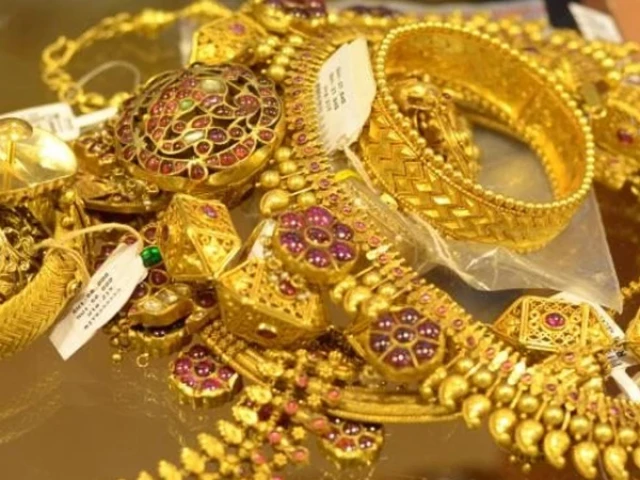
 Business1 week ago
Business1 week agoGold prices in Pakistan Today – December 20, 2025 | The Express Tribune
-
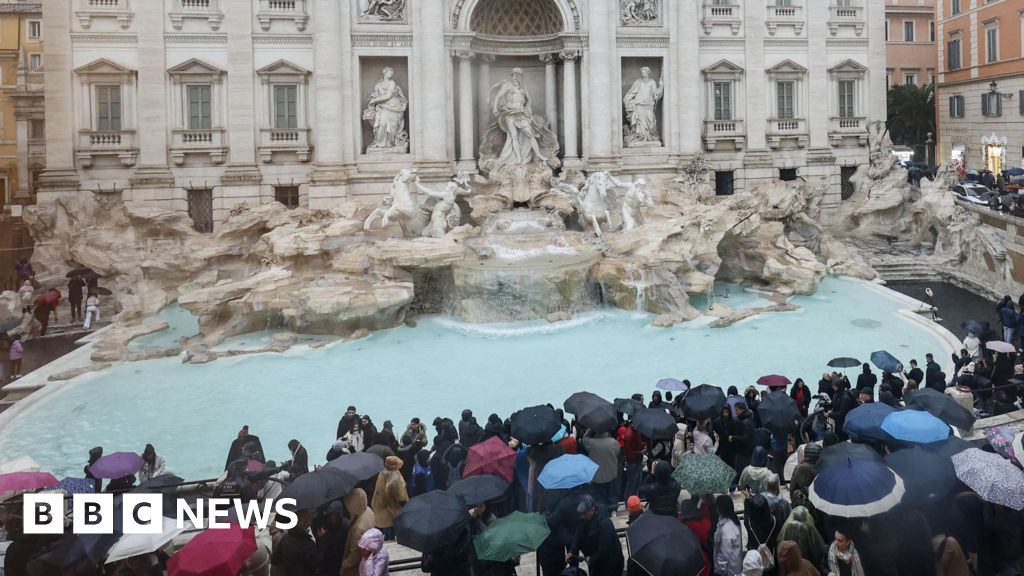
 Business1 week ago
Business1 week agoRome: Tourists to face €2 fee to get near Trevi Fountain
-
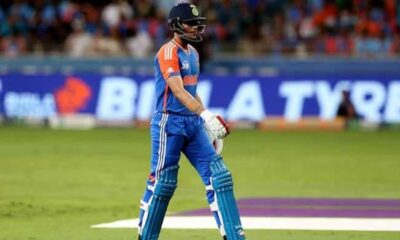
 Entertainment1 week ago
Entertainment1 week agoIndia drops Shubman Gill from T20 World Cup squad
-

 Entertainment1 week ago
Entertainment1 week agoZoe Kravitz teases fans with ring in wedding finger
-

 Tech1 week ago
Tech1 week agoWe Tried and Tested the Best Gifts for Plant Lovers With Our Own Green Thumbs
-
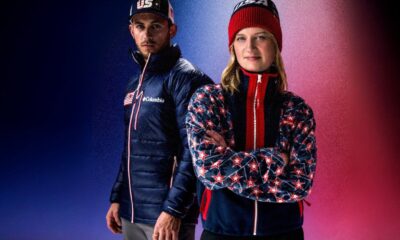
 Fashion1 week ago
Fashion1 week agoColumbia launches star-studded US Curling team uniforms for 2026


